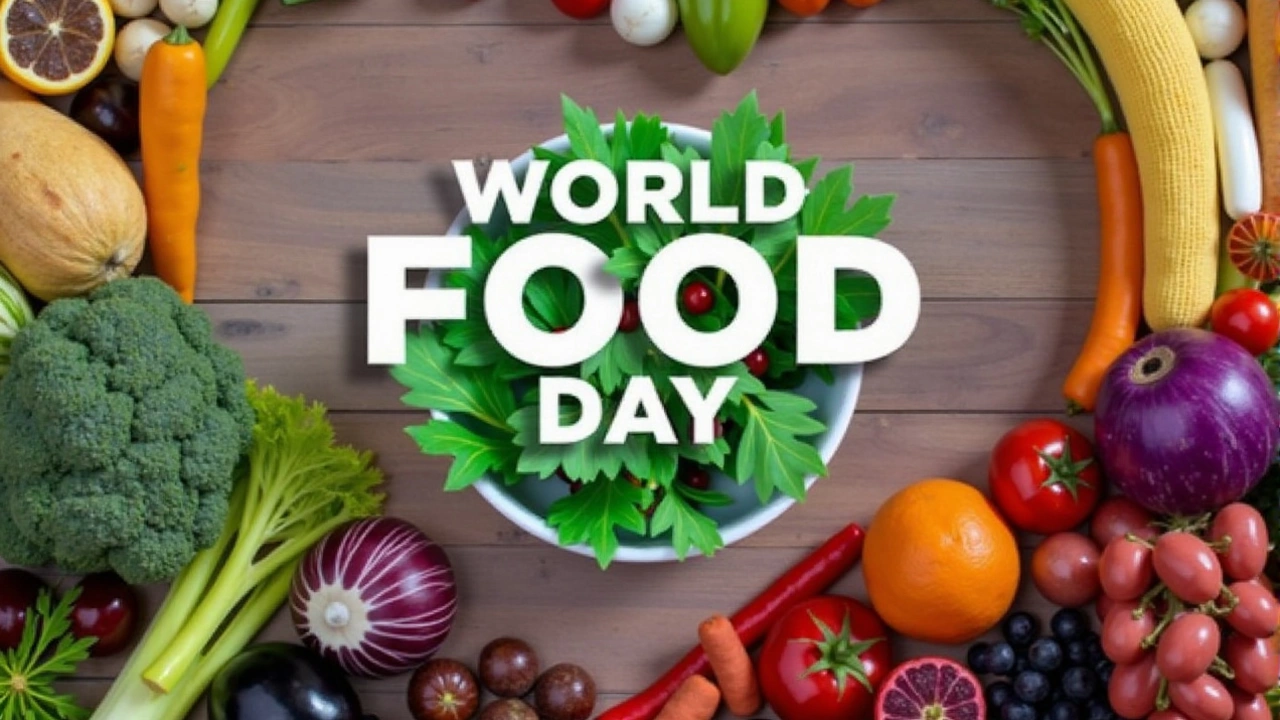What is World Food Day?
Every year on October 16th, people around the world come together to observe World Food Day. This occasion, spearheaded by the Food and Agriculture Organization (FAO) of the United Nations, is not just another day on the calendar; it marks a significant global effort to eradicate hunger and ensure everyone has access to nutritious foods. Since its inception in 1981, World Food Day has been a rallying point for awareness, highlighting the importance of healthy and affordable food for everyone, everywhere. While celebrated globally, its impact resonates deeply in countries like Nigeria, where millions grapple with food challenges daily.
The Importance of World Food Day
Hunger is a stark reality for millions around the globe, and sadly, it's a challenge that transcends geographical boundaries. World Food Day serves as a constant reminder that food is a fundamental human need, one no person should be denied. Each year, the day zeroes in on a specific theme that underpins the urgency to ensure food's availability, affordability, and nutritional value for all. For 2024, the theme 'Right to Food: For a Better Life and a Better Future' underscores the essential nature of food as a human right and its much broader implications on societies and future generations.
Food Production and Environmental Challenges
The journey from farm to table has myriad environmental consequences. Food production significantly impacts the planet, utilizing vast amounts of water and energy. Without sustainable practices, agriculture can lead to deforestation, soil erosion, and diminished biodiversity. Such environmental issues call for reflection on our food choices—how they affect the world and how we can be agents of positive change. With World Food Day, there's an urgent call to embrace these challenges, opting for locally grown foods, reducing waste, and supporting sustainable farming practices. By doing so, individuals contribute to an greener, more sustainable world.
Community Involvement
Participation in World Food Day isn't limited to grand gestures; it embraces everyday actions that make a difference. People are encouraged to donate non-perishable food items to local charities, reinforcing community support networks. Being mindful of food purchases and storage habits also minimizes waste, ensuring food is consumed rather than discarded. Moreover, supporting local farmers not only guarantees access to fresh and nutritious food but also bolsters local economies, fostering a more resilient agricultural sector. Spreading awareness about World Food Day further amplifies its mission, as knowledge empowers communities to rally behind the cause.
The Role of Government in Food Security
While individual actions are foundational, governmental policies are pivotal in creating lasting solutions to hunger and food insecurity. Policies that extend financial aid to farmers, improve agricultural infrastructure, and bolster food production are crucial. These strategies form the bedrock for enhanced food security, offering stability and growth potential to agriculture-dependent communities. World Food Day calls upon governments to prioritize these issues, ensuring frameworks are in place that not only alleviate immediate hunger but set a precedent for future food sustainability.
Global Call to Action
World Food Day is more than a day; it's a clarion call for action at every level. From individuals examining their relationship with food to governments enacting policies that tackle the root causes of hunger, every effort counts. It's an invitation to join a global dialogue about creating a world where food is a right shared by all. As we honor the theme 'Right to Food: For a Better Life and a Better Future,' we engage in a collective journey of change. One meal, one policy, one community at a time, the pursuit of a hunger-free world is not just possible but achievable, with every step taken making a meaningful impact.

Siphosethu Phike Phike
October 18, 2024 AT 11:50Peter Novák
October 19, 2024 AT 03:25eliana levi
October 19, 2024 AT 11:24Todd Gehrke
October 19, 2024 AT 13:47Allison Brinkley
October 19, 2024 AT 23:51Ghanshyam Kushwaha
October 21, 2024 AT 16:16Brittany Jones
October 22, 2024 AT 04:41Dinesh Gupta
October 23, 2024 AT 04:11Shalini Ambastha
October 24, 2024 AT 16:46Tamir Duberstein
October 25, 2024 AT 07:38Mitchell Ocran
October 27, 2024 AT 06:07Amanda Kelly
October 27, 2024 AT 09:03Jessica Herborn
October 28, 2024 AT 12:39Lakshmi Narasimham
October 29, 2024 AT 22:20Madhuri Singh
October 31, 2024 AT 07:12Amanda Dempsey
November 2, 2024 AT 00:03Ruth Ellis
November 2, 2024 AT 10:20John Bothman
November 2, 2024 AT 11:40SUBHANKAR DAS
November 2, 2024 AT 15:17